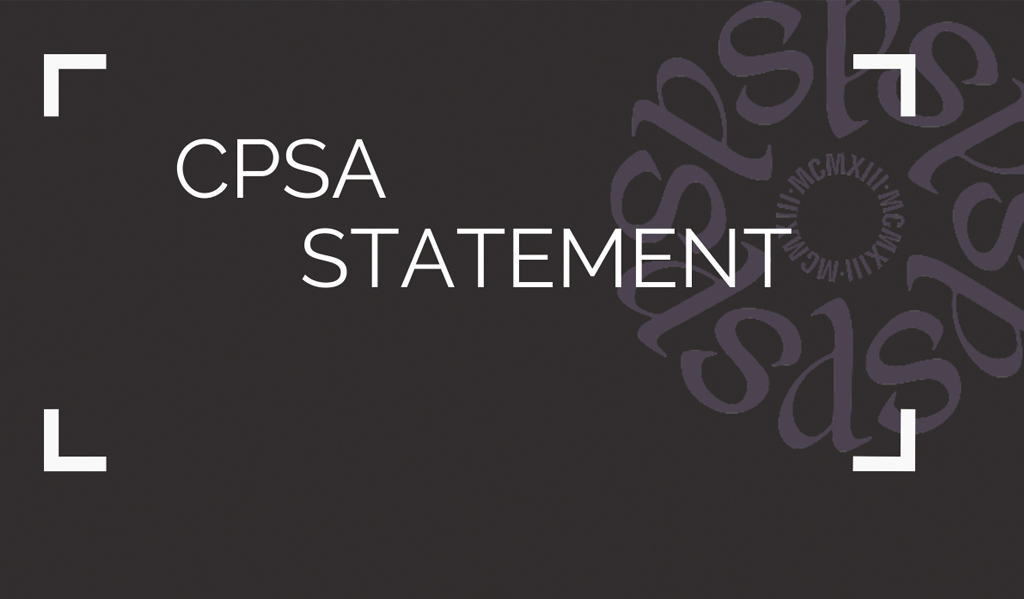CPSA Anti-Racism Statement

Widespread protests and actions in response to anti-Black violence and police brutality in the U.S., Canada, and beyond have focused the world’s attention on the deep, structural forms of racism that continue to shape our societies and institutions.
The CPSA stands in solidarity with the Black Lives Matter movement and acknowledges that we have much to learn from the extensive on-the-ground activist and organizing work that is taking place globally. We also recognize that such events personally and deeply affect those members of our Association, our colleagues and our students who have experienced racism and/or racialized violence in their own lived experience.
It is in this context that the CPSA acknowledges and condemns the continued existence of all forms of racism and colonialism, while recognizing a commitment to anti-racism and anti-colonialism in Canada necessitates awareness of the presence of colonialism and racism in Canada’s foundations and the systemic and ongoing structural inequalities in our society that have resulted. Racism and colonialism manifest on multiple scales from explicit instances of physical violence to societal norms to ways in which political science research and teaching have been and are constituted.
We thus acknowledge criticisms that Eurocentric, race-based, and colonial ideas and assumptions continue to pervade the study of political science in Canada, and the call for an ongoing need to decolonize and transform our ways of thinking and mobilizing knowledge. Political science scholarship and teaching can sometimes reinforce racism and colonialism, but it can also challenge it. To this end, the emergence of a growing body of scholars, scholarship and pedagogical practises challenging colonialism and racism in the theory and practise of politics in Canada provide the discipline with new avenues to address these ongoing issues in both scholarship and teaching.
As an Association, we are committed to actively addressing issues of equity, diversity and inclusion for all marginalized and underrepresented groups and creating a culture of inclusion in our research, conferences and workplaces. Concrete measures already underway include the work of the CPSA Reconciliation Committee and their development of curriculum resources for all political science faculty and organization of events at our annual conference; engaging with Chairs of Political Science at past meetings on the TRC Calls to Action and at the January 2020 meeting introducing a survey for their departments on the degree to which they have indigenized their curriculum, making support for diversity in the discipline one of six priorities in the CPSA 2020 Strategic Directions Report, beginning with revisiting the 2010 survey of department chairs on diversity amongst faculty to identify changes in the last decade and how far we still have to go; addressing with the FHSS the Code of Conduct and process which should accompany it, and extending the 2020 Congress’ focus on anti-black racism and anti-colonialism into future conferences, including next year’s CPSA theme on diversity within the discipline.
We acknowledge that these are merely initial steps to address the historical marginalization of many of our members and recognize that we need to continue to listen to and learn from these colleagues as we still have much to do to improve ourselves as a discipline and as an Association. We are committed to addressing these systemic inequalities through our programs, policies, and practices and will continue to work to remove barriers to our members’ full and equal engagement in the discipline of political science.
CPSA Board of Directors
June 2020
